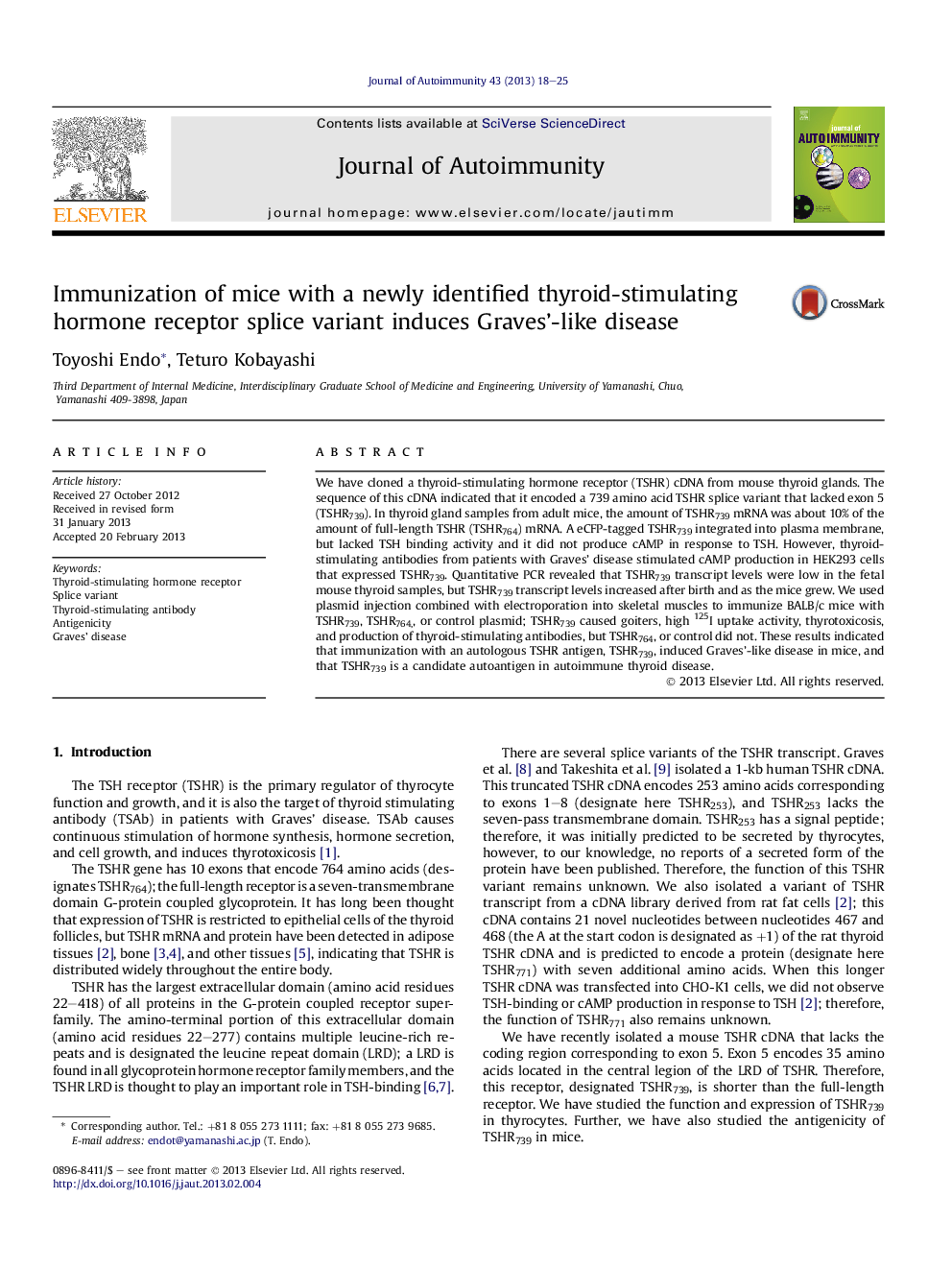| Article ID | Journal | Published Year | Pages | File Type |
|---|---|---|---|---|
| 3367801 | Journal of Autoimmunity | 2013 | 8 Pages |
We have cloned a thyroid-stimulating hormone receptor (TSHR) cDNA from mouse thyroid glands. The sequence of this cDNA indicated that it encoded a 739 amino acid TSHR splice variant that lacked exon 5 (TSHR739). In thyroid gland samples from adult mice, the amount of TSHR739 mRNA was about 10% of the amount of full-length TSHR (TSHR764) mRNA. A eCFP-tagged TSHR739 integrated into plasma membrane, but lacked TSH binding activity and it did not produce cAMP in response to TSH. However, thyroid-stimulating antibodies from patients with Graves' disease stimulated cAMP production in HEK293 cells that expressed TSHR739. Quantitative PCR revealed that TSHR739 transcript levels were low in the fetal mouse thyroid samples, but TSHR739 transcript levels increased after birth and as the mice grew. We used plasmid injection combined with electroporation into skeletal muscles to immunize BALB/c mice with TSHR739, TSHR764,, or control plasmid; TSHR739 caused goiters, high 125I uptake activity, thyrotoxicosis, and production of thyroid-stimulating antibodies, but TSHR764, or control did not. These results indicated that immunization with an autologous TSHR antigen, TSHR739, induced Graves'-like disease in mice, and that TSHR739 is a candidate autoantigen in autoimmune thyroid disease.
► A newly cloned TSH receptor splice variant lacks exon 5. ► The variant lacks TSH binding activity, but locates at plasma membrane. ► Immunization with this variant receptor induced Graves-like disease in mice. ► This variant TSHR has a strong antigenicity, and might be a candidate autoantigen in autoimmune thyroid disease.
